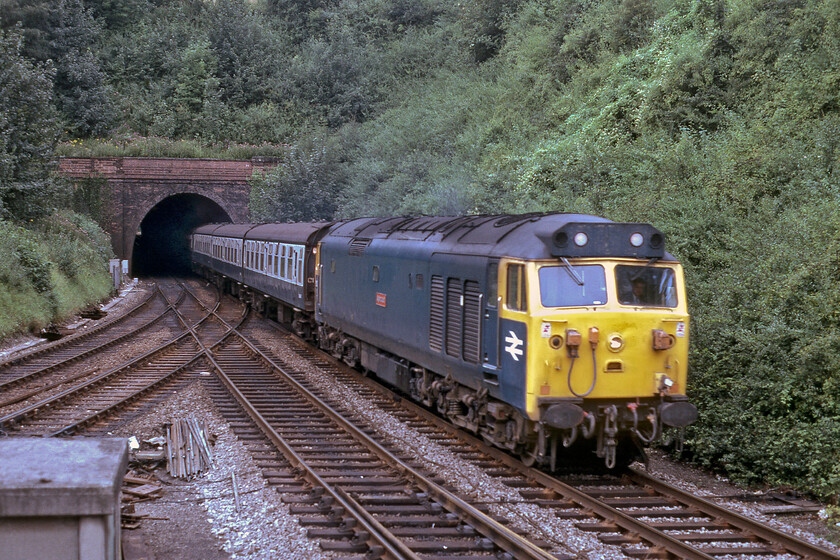|
||||
Having stopped at Salisbury, climbed away from the station andpassed through Fisherton tunnel 50013 'Agincourt' bursts into the daylight and takes the 'mainline' towards Andover, Basingstoke and London. The unrefurbished Class 50 is leading the 1O12 11.43 Exeter to Waterloo service and is photographed from the end window of Salisbury Tunnel Junction's signal box. Notice the absence of signalling at this spot caused by the close proximity of the junction and the tunnel. To get around this problem Salisbury East box’s starting signal was slotted to act as the junction signal. For down trains from both London (the mainline) and Dean (the 'Branch') signals were easier to place in more conventional locations. The spot seen in this photograph was where the collision took place between two trains on the night of 31.10.21 finding a GWR and SWT unit crushed together just inside the entrance to the tunnel with the latter almost on its side. The cause was, after much-ill-informed tittle-tattle fueled by members of the media and railway officials who should have known better, found to be an uncontrolled slide of a mile or so caused by leaf railhead contamination. This was due to this section of the track missing out on the last scheduled leaf-busting train. |
||||
|
|
||||

